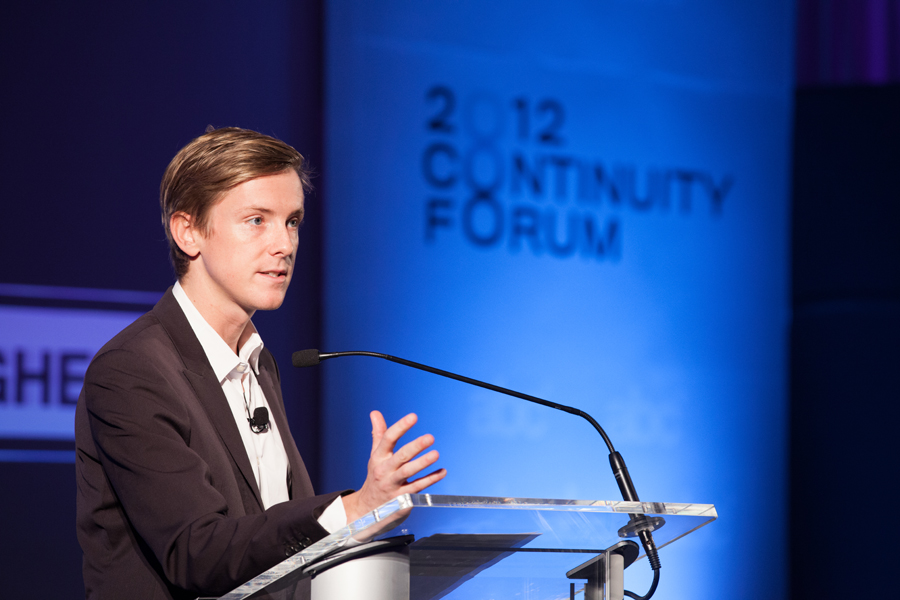
@chrishughes: entrepreneurship hits at the core of America’s character
One idea in America we really get right is the near universal respect for the entrepreneur, Chris Hughes, one of Facebook’s co-founders told the abc* Continuity Forum in Miami this week. “It gets to the core of not only our economy, but who we are as a country.”
He cited his involvement with the birth and explosion of Facebook as profound. Not only did it become one of the most powerful communication platforms of the 21st century, it serves as a template for what makes startups work.
In particular, he stressed the notion of iteration and that a big idea “doesn’t just drop from heaven.” Facebook was just one in a string of ideas, others included a social group study guide and another was a way for Harvard students to coordinate class schedules. When the idea of Facebook was eventually born, it was a mix of ambition and determination, a willingness to learn on-the-go and access to capital that helped it grow. Citing Silicon Valley as the center of innovation, Hughes said there are three key elements that make it a ripe place for entrepreneurs: strong educational institutions, a diversity of thought and risky capital. Now as the owner of The New Republic and a Knight Foundation trustee, Hughes said he is focusing on making long-form journalism easy for people to read wherever they are. We as a society are entering a new “golden-age,” he said: “Journalism isn’t just what we read when we have two minutes on our iPhone. It’s how we know what matters, it’s how we make decisions about what counts…What good journalism does is help us see the world in all its glory and its gore a little bit more clearly.” Hughes also noted that now more than ever before, we have the unique opportunity to deliver news and information across a limitless number of platforms. He shared several trends in the way content is being shared, in particular that somewhere between 20 to 35 percent of traffic to the major news sites is driven by social media. Other trends cited included:
- Aggregated e-mails: daily e-mails, like one sent from Politico, do a good job of curating the news of the day to keep readers on top of the relevant conversations, yet in a way that doesn’t sacrifice a unique voice;
- Slideshows and infographics: images are more important on the web than almost any other type of content. They’re what consistently gets shared, especially via social media;
- Audio: whether via podcasts or radio clips, news organizations are experimenting with and increasing the amount of audio they’re producing;
- Push notifications: with the explosion of mobile access, more and more brands are using direct notifications to users’ devices as a way to connect directly with consumers.
Whether it is building a tech startup or finding a new way to bring quality journalism to people across the country, refusing to be satisfied with the standard ways things are done can be an important first step towards making something incredibly exciting, Hughes said. Try to build brands that prize great user experiences and innovation to think about what consumers need, he advised: “It’s essential for our society and democracy and for our economy to function well.”
Following his presentation, Hughes joined Apple Co-Founder Steve Wozniack and Knight Foundation President and CEO Alberto Ibargüen in a special abc* fellows-only conversation. Topics covered included issues related to privacy, openness and how to get more women and minorities in the tech field.
Knight supported the three-day conference, which brought leaders and entrepreneurs together to confront social and environmental issues in the Americas, as part of its effort to foster Miami as a place where ideas are built. By Elizabeth R. Miller, communications associate at Knight Foundation
Recent Content
-
Communitiesarticle ·
-
Communitiesarticle ·
-
Communitiesarticle ·


